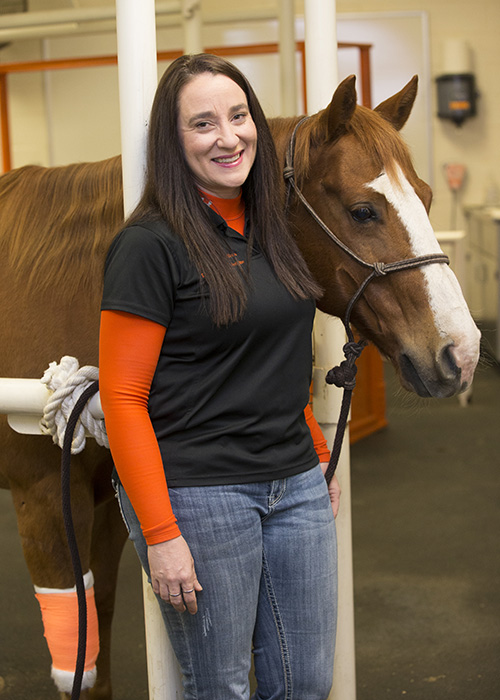
Today’s veterinary care includes specialists
Thursday, July 18, 2019
Veterinary care has changed dramatically over the years. While we still treasure the idea of James Herriot taking care of all animals, great and small, veterinary medicine recognizes the benefit of specialists the same way that human medicine does. These specialists spend extra years of training in a narrow specialty to become very knowledgeable in that one area. A great analogy is what you might experience with your dentist. Dentists may fill your cavities and perform routine cleanings but when you require a root canal on a molar, they are likely to refer you to an endodontist, who spent extra time training and is quite excellent in that area. You get the best of all worlds by utilizing everyone’s training to the fullest. Today, you can do the same for your animals!
Imagine you’re taking your horse to primary care veterinarians. Despite utilizing all the equipment and expertise available to them, they just cannot get your horse well. Rather than this being the end of the road, they call a specialist who has specialized knowledge, skills or equipment for a deeper look into your horse’s problem. This specialist communicates with your primary care veterinarian, getting up to speed on what has been done to this point, and examines your horse. Together, they apply their expertise and figure out what is wrong with your horse and make a treatment plan. The end result is a diagnosis, a treatment plan and a healthy horse. These scenarios play out every day in Stillwater at Oklahoma State University’s Veterinary Medical Hospital. OSU’s hospital houses veterinarians specialized in 14 different areas who communicate daily with veterinarians across the region, utilizing their special training and equipment to help heal animals.
OSU’s Veterinary Medical Hospital houses the only equine internal medicine specialists in the state of Oklahoma. These specialists are trained to diagnose and treat complicated and critical diseases in horses of all ages. It is easy to imagine what surgeons do, but it is much harder to understand what an internal medicine specialist does. In the same way you wouldn’t visit an ophthalmologist to fix your heart problem, you shouldn’t expect a surgeon to have the same expertise as an internist. Internists are the mystery solvers of the veterinary world. They use keen observation skills and utilize such tools as ultrasound and endoscopy to examine horses inside and out until they arrive at a diagnosis and a treatment plan. They are physiology experts with a deep understanding of how every cell in the body works together and how medications interact with one another and with the body. They evaluate laboratory work in a way that a criminologist would analyze a crime scene and find details that no one else would. Internal medicine is an art form. Every animal is different with different needs, and an internist can ensure no stone is left unturned on the way to a diagnosis through to treatment. They strive to arrive at a diagnosis in the least invasive way possible and craft a treatment plan that benefits both the animal and the owner. Internists are strategists, they are thinkers, and you want them on your team.
Veterinary specialists are not a replacement for your primary care veterinarian in the same way your cardiologist doesn’t replace your primary care physician. Quality veterinary care involves a team of veterinarians who communicate well with one another for the ultimate benefit of your animals’ health and well-being.
